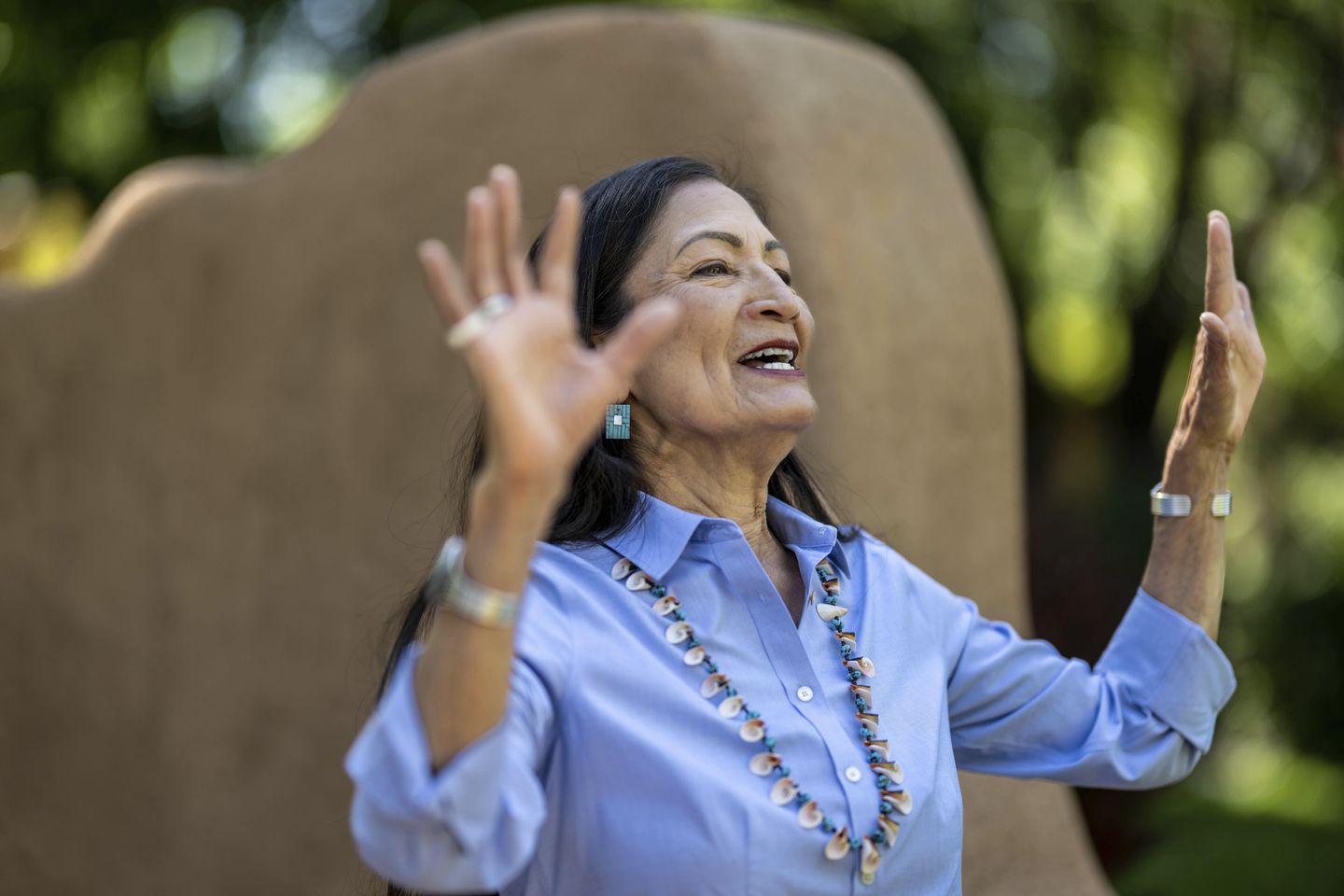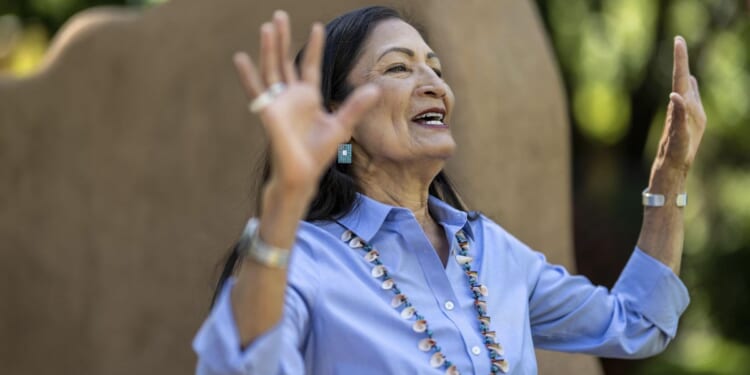
House lawmakers will hold an oversight hearing Tuesday to scrutinize the influence of what Republicans call “radical” environmental activist groups in the Department of the Interior.
“Under Secretary Deb Haaland, the Department of the Interior has cultivated intimate and potentially improper relationships with radical NGOs [non-governmental organizations] driving the Biden administration’s extreme environmental agenda,” GOP lawmakers on the oversight and investigations panel of the Natural Resources Committee said.
Republicans on the panel, led by Rep. Paul Gosar of Arizona, say the influence of “extreme environmental activist” groups over policy and politics in the U.S. is on the rise.
They list examples how Ms. Haaland allegedly coordinated with the Pueblo Action Alliance, a left-wing Native American activist group with which Ms. Haaland had a relationship prior her joining the Biden Cabinet, to advocate to withdraw more land in Chaco Canyon from natural resource development.
They contend that the administration is beholden to many activist groups, specifically those on the Left with social and environmental justice agendas.
These NGOs must comply with rigorous ethics requirements, but their influence within the rule-making process is growing.
Republicans say their influence is often hidden from the public through off-the-record exchanges during the informal rule-making process.
The Interior Department refused to comment.
The committee is expected to explore whether the department coordinates with leftwing activist organizations and violates the Administrative Procedure Act when engaging in the rule-making process.
Formal rulemaking is, according to the statute, “on the record” and requires a trial-type agency hearing. This seldom happens today during the rule-making process, while informal rulemaking, known as “notice and comment,” happens more often.
During an informal process, an agency will study an issue and eventually draft a notice of proposed rulemaking. Later on, the agency drafts a proposed rule that is reviewed internally and then by the Office of Management and Budget and its Office of Information and Regulatory Affairs.
Following the review, the rule is published in the Federal Register to allow for public comment, and federal agencies must then analyze the public comments. The rule is finalized incorporating or otherwise responding to the public’s views.
Committee Republicans want to focus on the “ex parte communication” or oral communications during face-to-face meetings between stakeholders and agency personnel that relate to rulemaking, which are not written comments submitted during the comment period.
Although the APA prohibits “ex parte” communications for formal rulemaking and adjudications, it says nothing about oral communications for informal rulemaking, effectively allowing them.
“As a result, public stakeholders may request meetings with agency staff— often high-level officials or those with technical expertise charged with making final policy decisions—in an attempt to influence or change a proposed rule,” committee Republicans said.
They said federal courts and academics have expressed significant concerns, including frustrations of judicial review of agency rulemaking actions, questions of fairness, undue influence over decision makers, a final rule reflecting a compromise of competing special interests rather than the “exercise of independent discretion in the public interest,” and impropriety or the appearance of impropriety.
Scott Walter, president of the Capital Research Center; Tyler O’Neil, author of “Making Hate Pay: The Corruption of the Southern Poverty Law Center,” and Richard Painter, S. Walter Richey Professor of Corporate Law at the University of Minnesota Law School, will testify.
Witnesses from the Wilderness Society and Pueblo Action Alliance declined an invitation to testify.

